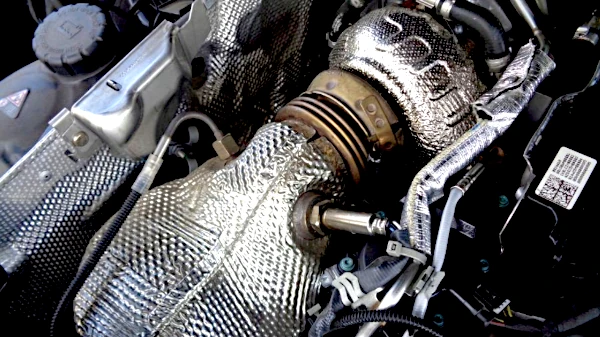Tuning the Exhaust System in Diesel Cars: Benefits and How-to
Diesel engines have a reputation for being powerful and efficient, but like any engine, they can benefit from performance upgrades. One of the most effective upgrades for diesel cars is tuning the exhaust system. In this article, we'll discuss the benefits of tuning the exhaust system in diesel cars and provide some tips on how to do it. We'll also touch on adding or upgrading a turbocharger as part of the exhaust system upgrade.
Why Tune the Exhaust System in Diesel Cars?
The exhaust system plays a crucial role in the performance of any engine, and diesel engines are no exception. The stock exhaust system in a diesel car is designed to meet emissions regulations and provide a balance between performance, efficiency, and sound. However, by tuning the exhaust system, you can optimize the flow of exhaust gases and improve the car's overall performance. Here are some of the benefits of tuning the exhaust system in diesel cars:
Increased Horsepower and Torque
By optimizing the flow of exhaust gases, a tuned exhaust system can increase the car's horsepower and torque. The less restrictive the exhaust system, the easier it is for the engine to expel exhaust gases, allowing it to breathe more freely and generate more power.
Enhanced Sound
Many aftermarket exhaust systems are designed to produce a more aggressive and sporty exhaust note, which can improve the car's overall sound. If you're looking for a more aggressive exhaust sound, a tuned exhaust system can deliver.
Adding or Upgrading a Turbocharger
Another way to improve the performance of a diesel engine is to add or upgrade a turbocharger. A turbocharger is a device that compresses the air that is fed into the engine, which can increase the engine's power output. By adding a turbocharger to an engine that doesn't have one, or upgrading to a more efficient turbocharger on an engine that already has one, you can further improve the engine's performance.
To add or upgrade a turbocharger, the car needs to be tuned on a test bench. The turbocharger needs to be properly sized and calibrated to ensure that it delivers the optimal amount of boost pressure for the engine's needs. The engine's fuel delivery system also needs to be tuned to ensure that it provides enough fuel to match the increased airflow provided by the turbocharger.
How to Tune the Exhaust System in Diesel Cars
There are several ways to tune the exhaust system in diesel cars. Here are some of the most effective methods:
Aftermarket Exhaust System
One common way to tune the exhaust system is to replace the stock exhaust system with an aftermarket system that has larger diameter pipes, less restrictive mufflers, and better flow characteristics. Aftermarket exhaust systems can be made from stainless steel or other high-quality materials and may feature larger or high-flow catalytic converters, resonators, or mufflers to reduce noise and improve performance.
Exhaust Headers
Exhaust headers are another popular upgrade for diesel cars. Headers are designed to replace the stock exhaust manifold and are made from stainless steel or other high-quality materials. Headers have larger, smoother tubes that allow exhaust gases to flow more freely, reducing backpressure and increasing horsepower and torque. Headers can also be tuned for specific engine RPM ranges to improve power output across the power band.
Cold Air Intake
A cold air intake is a simple upgrade that can improve the performance of any engine, including diesel engines. A cold air intake replaces the stock air filter and intake ducting with larger, less restrictive components. This allows the engine to breathe in more cold, dense air, which can improve power output and fuel efficiency. A cold air intake can also produce a more aggressive engine sound.
Conclusion
Tuning the exhaust system in diesel cars is a popular and effective way to increase performance, improve fuel efficiency, and enhance the car's sound. Adding or upgrading a turbocharger can further improve the engine's power output. By replacing the stock exhaust system with an aftermarket system, upgrading to exhaust headers, or installing a cold air intake, you can optimize the flow of exhaust gases and increase horsepower and torque. If you're considering tuning your diesel car's exhaust system, be sure to consult with a professional mechanic or tuning specialist to ensure that you get the best results possible.
Get the Ultimate Sound Control with the Universal Valved Muffler